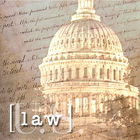
Under Article VI of the US Constitution: Under Article 1 of the Convention against Torture: Under Article 2 of the Convention against Torture: Under Article 4 of the Convention against Torture: Under the US Foreign Assistance Act: |
GENERALS, REPUBLICANS REVOLT AGAINST BUSH TORTURE POLICY WHITE HOUSE CLAIMS 'BLACK SITE' SECRET PRISONS & COERCIVE INTERROGATIONS NOW FUNDAMENTAL TO US DEFENSE POLICY 16 September 2006 Roughly three dozen retired generals, including former Sec. of State and Chairman of the Joint Chiefs of Staff, Colin Powell, have come out in opposition to the White House's latest attempt to transform the legal meaning of the Geneva Conventions ban on torture and inhumane treatment of prisoners. Senate leaders, behind John McCain (R-AZ) have also joined the rebellion, passing a measure that upholds the standing definition of the Geneva constraints on coercive interrogation. The generals say redefining Article 3 of the Geneva Conventions to permit extreme interrogation techniques in order to coerce information from terror suspects would put the lives and wellbeing of US military personnel at risk. It is feared that explicitly permitting the interpretation of a ban on inhumane or undignified treatment of prisoners of war would permit not only US personnel to inflict torture on their prisoners, but would invite those who might capture US personnel to use torture against them. After refusing to admit to using torture, or to define its interrogation tactics as such, and after refusing to admit to maintaining a secret network of CIA-run prisons where terror detainees were held without recourse to judicial processes, diplomatic intervention, and beyond the reach of all existing legal frameworks, the administration has admitted that the CIA prisons do exist and is now defending them. The White House is pushing to legalize them officially (an indirect admission that there is currently no legal basis for their existence) and to make the "alternative interrogation" techniques employed there a matter of official government policy. This is has led to widespread anger among Republicans who believed the administration when it said it did not use torture and that it was following all obligations the US has under international law. That anger is now coming together as a resistance to the administration's proposed alterations to the American judicial system, and is buttressed by vehement opposition from retired military officers, including former prisoner of war and torture victim, Sen. John McCain (R-AZ). The Supreme Court has ruled that the indefinite and/or secret detention of accused terror suspects is unconstitutional and that the US government, as signatory to the Geneva Conventions, has an absolute legal obligation to follow all of their provisions as a matter of law, everywhere US personnel operate. This essentially means an order to close the Guantánamo Bay prison camp, improve the conditions under which the detainees are being held, and grant them access to a legal process to determine innocence or guilt. There is concern among many observers, including top legal scholars, that the prosecution of these suspects is now irreparably damaged. Their detention under irregular or illegal circumstances could undermine any attempt to subject them to prosecution under the American criminal justice system. So the administration is seeking the right to withhold"secret evidence" from the accused, a provision which directly violates the US Constitution, but one which the White House hopes it will be granted in "special military tribunals". Whether ad hoc proceedings will be initiated, or whether the traditional system of military courts martial or the US criminal justice system will be used to deal with the perceived "most dangerous" detainees, remains unclear. But while the Bush administration seeks to use the legislative process to retroactively sanction practices already declared illegal by the US Supreme Court, it does seem a legal fact that such changes to the American legal system could only really be brought about by constitutional amendment, a process which no elected official is known to be considering. Republicans also appear nervous as mid-term Congressional elections approach. They do not want to be seen as using the terrorism issue as an excuse to grant unprecedented powers to the Executive branch, an move that would grate many of the conservative voters at the base of their constituency. They also have sought to draw a clear line between some of the more disturbing revelations about pre-war intelligence and Iraq-war policy and their position as being "tough on terrorism". The president's low approval rating, hovering around 30% in recent polling (on 5 September, CNN reported 76% of Americans were unhappy about some aspect of White House policy), means the Republican party is agitated and nervous about how closely to align re-election campaigns with the president's policies, some of which have been opposed by Supreme Court rulings and some of which imply a radical departure in the application of American law to those that govern. Candidates running to win new seats have been even more reluctant to show allegiance to the president. This has helped to bring about the heated environment on Capitol Hill, where the White House has been sending out emissaries, including Pres. Bush himself, to promote and defend the idea that the US is more secure as a result of the kind of aggressive interrogations and extralegal detentions it had, until recently, denied ever having used, and where Senate leaders have taken a stand, saying they would prefer to strengthen the language of Article 3, if it will keep American soldiers safer in combat zones. [s]
RELATED STORIES: Pres. Bush has acknowledged the existence of a secret network of CIA-run prisons, where an "alternative set of procedures" was used to extract information given up "unwillingly" by top terror suspects. The revelation suggests that some facilities existed on European soil, renewing allegations that have long been denied by European and US officials, and provoking calls for a probe into possible human rights violations. [Full Story] SUPREME COURT FINDS GUANTÁNAMO DETAINEES' RIGHTS DENIED BY BUSH MILITARY TRIBUNALS Pres. Bush's efforts to assume new powers in personally judging accused al-Qaeda co-conspirators "enemy combatants", then crafting a unique, extralegal war crimes tribunal system, where certain rights are denied the defendants, have been rejected by the Supreme Court. The Bush administration must now file criminal charges, either in civilian criminal court or before a standard military court martial. [Full Story] SERIOUS LEGAL PROBLEMS INHERENT IN GHOST FLIGHTS & 'EXTRAORDINARY RENDITION' The principal legal problem relating to alleged "ghost flights", secret interrogations and the policy of "extraordinary rendition" is the extralegal nature of all three techniques. The issue centers on these processes being designed to operate beyond the scope of ordinary legal constraints. [Full Story] RICE STAKES OUT "NUANCED" POSITION ON ABDUCTIONS, TORTURE Amid growing concern relating to press reports of undisclosed CIA flights through or over European nations, with possible connections to the abduction of terror suspects and the use of secret detention centers, US Secretary of State Condoleezza Rice has sought to defend US policy. She admitted that the US might make mistakes in the "war on terror", but did not make specific reference to controversy over the alleged abduction of an innocent German citizen who, after 5 months of questioning in Afghanistan, proved to be a case of mistaken identity. STORY UPDATE: 8 December Update: |
||||||||||||
|
|||||||||||||

